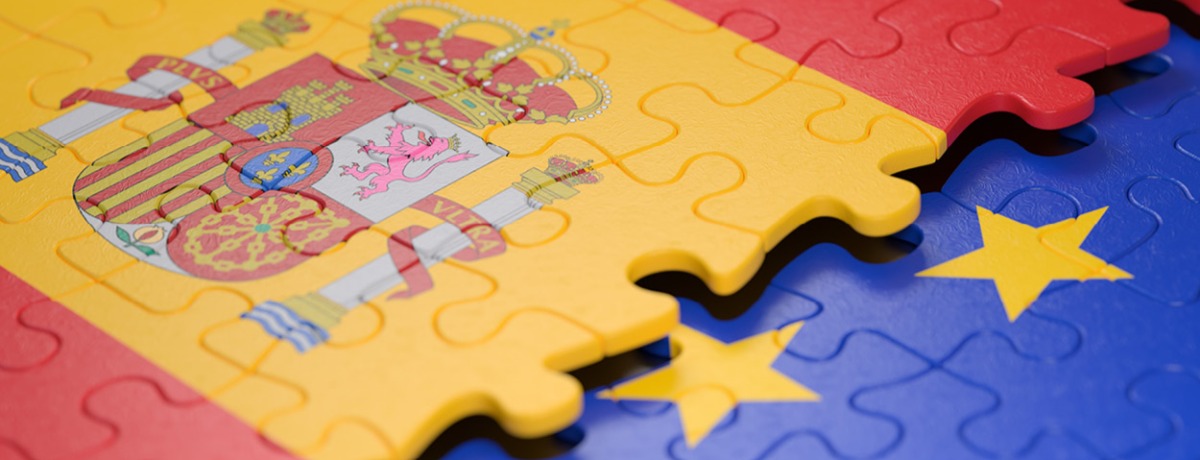For Manuel Lobato of Bird & Bird—Spain’s 2019 “Law Firm of the Year” winner in intellectual property law —the changes coming to patent litigation in the E.U. are a new opportunity for the firm to continue their success. The expertise of attorneys like Lobato in the development of E.U. policy as well as domestic Spanish law has cemented the firm as one of Spain’s top practices. In a conversation with Best Lawyers CEO Phillip Greer, Lobato meditates on the future of intellectual property law.
How do you anticipate intellectual property law changing in Spain, in the coming years?
Manuel Lobato: I think that once the patent with unitary effect will enter into force in Spain, or in other European countries, patent litigation will decrease dramatically. In comparison with other jurisdictions, Spain is not in a good position to compete compared with other countries. Other jurisdictions have specialization, normally with only one competent court, or a very limited number of courts. Also, in other countries, the courts have judges who have a technical background that we don't have in Spain, we lack a tradition and a settled body of patent law precedents. I think this will impact the near future because cases in Spain will fall dramatically.
Other areas, like copyright, or internet law, would be more important in Spain. In fact, the right of privacy in Spain is very strong, and it has influenced even European legislation. Trademark practice will remain strong because Spain is the location of the European Union Intellectual Property Office for Trademarks.
And the last point I think would have an impact in the near future is the interface between antitrust law and patent law. It has been present in the pharmaceutical sector, but it will apply to disruptive technologies.
How do Spain's IP laws different from those passed by the E.U.? Do you have attorneys that specialize in those Spanish laws and regulations passed by the European Commission?
In principle, Spanish law and European intellectual property law are aligned because of the supremacy of the European Union principle—any European Union legislation will trump Spanish law. In the past, there were some problems because courts sometimes didn't apply E.U. provisions. On one occasion, I made an affidavit concerning the international exhaustion of trademark (TM) rights to explain why a Supreme Court Ruling stating that there was no E.U. exhaustion of TM right was incorrect according to Spanish law. Later on, the Civil Chamber corrected this doctrine.
So, in principle, there shouldn't be any contradiction. The fact is that the European Union Law is only partly harmonized. It means that there is not a European regulation for every intellectual property right. In some matters, the regulation is quite heavily harmonized, like in design law, or trademark law. In other matters like patent law, it is only partially harmonized, as in the regulation for biotech inventions, the SPC, etc.
Ultimately, the patent law requirements are the same in all European Union countries because they derive from the Munich convention. But the courts don't apply the same provisions in the same manner. The interpretation of equivalent provisions differs from country to country and that's why the patent with unitary effect was created.
The fact is that the European Union Law is only partly harmonized. It means that there is not a European regulation for every intellectual property right. In some matters, the regulation is quite heavily harmonized, like in design law, or trademark law. In other matters like patent law, it is only partially harmonized, as in the regulation for biotech inventions, the SPC, etc.
The idea was to avoid confusing decisions in different jurisdictions, and to finish with your question, all lawyers in Bird & Bird as in many other Spanish firms, are conversant with European Union legislation, and Spanish legislation because they have to apply both at the same time.
Are there any other policy changes that have impacted intellectual property law?
Well, there are two policies that have impacted intellectual property law. The first one is the trade secrets directive, which has been implemented across most EU countries. The second one is the influence of American legislation concerning compliance. Practice shows that many companies, especially those listed on the Stock Exchange, need to apply for compliance programs and they are very strict in matters that could generate liability for the board of directors. That means that contracts are now very detailed to cover any compliance issues, concerning what happens when there is a trademark infringement, or patent infringement or any alleged infringement of an intellectual property law.
What technology-driven changes have affected IP law in Spain?
Well, I think the most significant is the discussion of the European copyright directive. I think it's the first time that a technical question has ignited such debate in the Spanish media, on television, et cetera. Many lay people were discussing the Google tax, or the reform of the Copyright Directive and its impact on the access to news, etc. Any IP aspect of technology law has an impact on a wider audience.
How does Bird & Bird stay agile against its competitors?
In my opinion, the most important thing is our internal discussions and our meetings to share knowledge, and to discuss matters. We have a group which is discussing the patent with unitary effect, there is also another group which is discussing the trade secrets directive. And I think it is one of the most important areas of future development for the firm.
We also care a lot about our associates. We try to have discussions regarding the matters we are handling and the partners care about their associates' training. I think that is crucial to be competitive in the market.

















